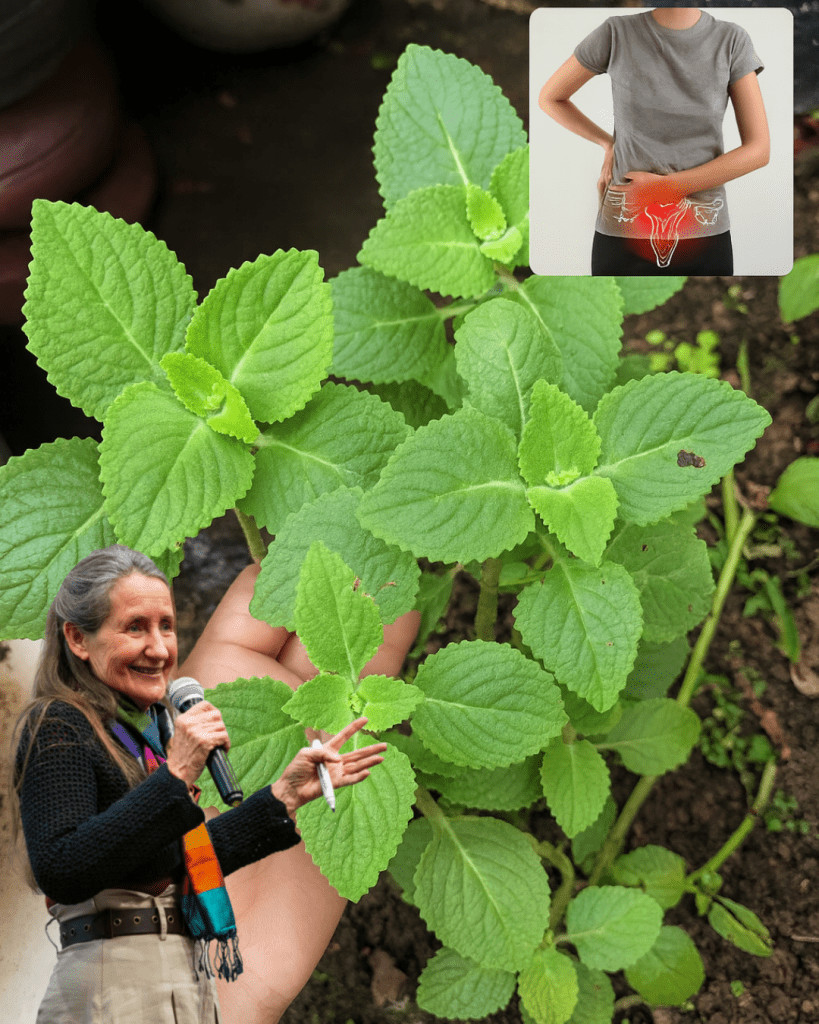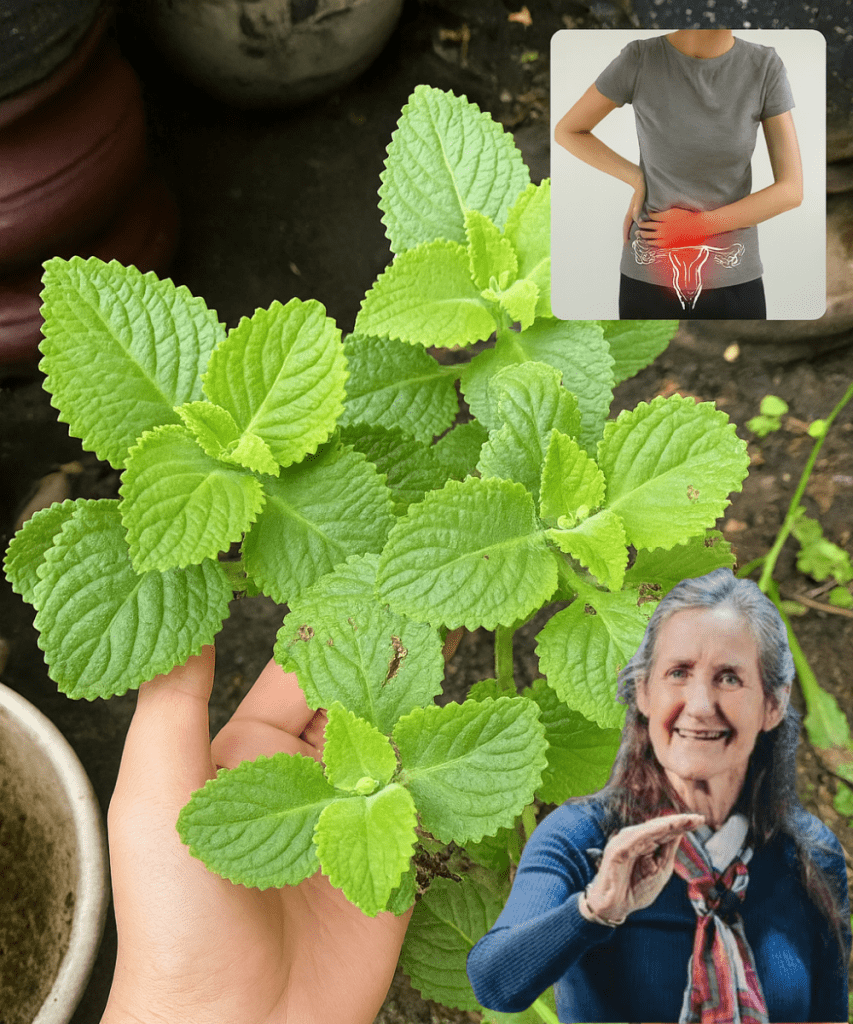What if a plant growing in your backyard could transform your health and elevate your meals? Coleus amboinicus, also known as Indian Borage, Cuban Oregano, or Mexican Mint, is a lush, aromatic herb that’s far more than a garden curiosity. With its pungent oregano-like scent and a treasure trove of bioactive compounds, this Lamiaceae family gem has been a staple in traditional medicine and cuisines across tropical regions for centuries. From soothing coughs to fighting inflammation, its benefits are as diverse as they are powerful. Ready to discover why this succulent herb is a must-have for your wellness and kitchen? Dive into this guide to explore 10 incredible health benefits, practical uses, and the secrets of Coleus amboinicus that will leave you eager to harness its magic.

🌱 Why Coleus Amboinicus Is a Healing Powerhouse
Native to Africa, the Arabian Peninsula, and India, Coleus amboinicus thrives in tropical climates, its fleshy leaves and stems bursting with carvacrol, thymol, and flavonoids. These compounds deliver antimicrobial, anti-inflammatory, and antioxidant effects, making it a cornerstone of Ayurvedic and folk remedies. Whether used to flavor a dish or brew a healing tea, this herb’s versatility captivates. Its vibrant green, serrated leaves and subtle purple flowers add beauty to gardens, while its therapeutic potential supports everything from digestion to respiratory health. Let’s uncover the 10 ways this herb can transform your well-being.
💪 10 Incredible Health Benefits of Coleus Amboinicus
🦠 1. Fights Bacteria and Fungi
Coleus amboinicus is a natural antimicrobial warrior, with carvacrol and thymol targeting pathogens like E. coli and Aspergillus niger. Its ability to inhibit bacteria and fungi makes it ideal for treating infections. Apply leaf paste to minor cuts or sip its tea to bolster immunity.
🔥 2. Reduces Inflammation
Chronic inflammation fuels conditions like arthritis and heart disease. The herb’s phenolic compounds, like rosmarinic acid, soothe swelling and pain. Use a leaf decoction or tea to ease joint discomfort or inflammatory conditions naturally.
🍵 3. Soothes Digestive Issues
Struggling with bloating or constipation? Coleus amboinicus’s fiber and volatile oils calm the digestive tract, promoting regular bowel movements and reducing discomfort. Drink its tea post-meal or add chopped leaves to soups for gut-friendly relief.
🌬️ 4. Supports Respiratory Health
For coughs, colds, or asthma, this herb’s expectorant properties clear mucus and relax bronchial muscles. Its antimicrobial action fights respiratory infections, making it a go-to for flu season. Brew a tea with fresh leaves to breathe easier.
🩺 5. Regulates Blood Sugar
Early studies suggest Coleus amboinicus may enhance insulin sensitivity, helping manage blood sugar levels. Its antioxidant properties protect against diabetes-related complications. Sip tea weekly, but consult a doctor if on diabetes medications.
❤️ 6. Boosts Heart Health
The herb’s anti-hypertensive compounds, like carvacrol, dilate blood vessels, lowering blood pressure. Its antioxidants reduce cholesterol buildup, supporting cardiovascular wellness. Add to meals or drink as tea for heart-healthy benefits.
🧬 7. Packed with Antioxidants
Flavonoids and phenolic acids in Coleus amboinicus neutralize free radicals, protecting cells from oxidative stress. This slows aging and reduces chronic disease risk. Incorporate leaf powder into smoothies for a daily antioxidant boost.
🩹 8. Promotes Wound Healing
The herb’s antimicrobial and anti-inflammatory properties speed wound healing. A leaf paste applied to cuts or burns prevents infection and reduces scarring, making it a natural first-aid remedy.
🦴 9. Supports Bone Health
Rich in calcium (0.158%) and potassium (0.138%), Coleus amboinicus strengthens bones and prevents osteoporosis. Its omega-6 fatty acids, like gamma-linolenic acid, reduce joint degeneration, ideal for athletes or seniors. Use in teas or meals for skeletal support.
🦟 10. Repels Mosquitoes
The essential oils, including thymol, have larvicidal properties against Aedes aegypti and Anopheles mosquitoes, helping prevent dengue and malaria. Burn dried leaves or use oil in diffusers to keep pests at bay.
🛠️ How to Use Coleus Amboinicus
Harness this herb’s potential with these practical methods, using fresh or dried leaves from pesticide-free sources:
🍵 Herbal Tea
Boil 4-5 fresh leaves or 1 teaspoon dried leaves in 1 cup of water for 10 minutes. Strain and drink 1-2 times daily to support digestion, respiratory health, or immunity.
🩹 Wound Paste
Crush fresh leaves into a paste and apply to minor wounds or skin irritations. Cover with a cloth and rinse after 2-3 hours for healing and infection prevention.
🍲 Culinary Flavor
Chop fresh leaves and add to meats, fish, or soups as a sage substitute. Their oregano-like flavor masks strong odors and enhances dishes while delivering health benefits.
💧 Essential Oil
Use leaf-infused oil in diffusers or skin creams for aromatherapy, mosquito repellent, or to soothe skin conditions like eczema.
🥄 Powder Supplement
Grind dried leaves into powder and mix 1/4 teaspoon into smoothies or yogurt for antioxidant and digestive support. Limit to 2-3 times weekly.
💬 A Story of Natural Healing
A neighbor battling chronic coughs and low energy discovered Coleus amboinicus in her garden. Inspired by a traditional recipe, she brewed its tea daily. Within a week, her cough eased, and by week three, she felt more vibrant and focused. This simple herb, once overlooked, became her daily ritual, proving nature’s power to heal.
🧠 Tips for Maximum Benefits
- Consistency: Use 2-3 times weekly for cumulative effects on digestion, inflammation, or immunity.
- Pair with Probiotics: Combine with yogurt or buttermilk, as traditionally done in India, to enhance gut health.
- Freshness: Harvest young, vibrant leaves for maximum potency and flavor.
- Culinary Creativity: Add to salads or marinades for a nutrient-packed flavor boost.

⚠️ Precautions for Safe Use
- Consult a Doctor: If pregnant, breastfeeding, or on medications (e.g., blood thinners, diabetes drugs), check for interactions, as the herb may lower blood pressure or sugar.
- Moderation: Limit to recommended doses to avoid digestive upset or throat irritation from essential oils.
- Allergy Test: Apply a small amount of paste or sip a tiny dose to check for sensitivities.
- Avoid Overuse: Excessive consumption may cause diarrhea or low blood pressure.
🌍 A Legacy of Healing and Flavor
From Indian kitchens to Caribbean spice blends, Coleus amboinicus has flavored dishes and healed ailments for centuries. Known as “Karpooravalli” in Tamil or “Parnayavani” in Ayurveda, its oregano-thyme aroma and therapeutic compounds make it a global treasure. Modern studies confirm its antimicrobial and antioxidant powers, bridging ancient wisdom with today’s wellness needs.
✨ Embrace Coleus Amboinicus Today
Don’t overlook this tropical gem growing in your garden or market. Coleus amboinicus is a versatile herb that fights infections, soothes pain, and adds zest to your meals. Whether you brew its tea, apply its paste, or sprinkle its leaves into a dish, this plant delivers health and flavor in every use. Start your journey with Coleus amboinicus today—grow it, cook it, or sip it—and feel the vibrant difference. Share your favorite way to use this herb in the comments below, and let’s inspire each other to thrive with nature’s magic!
Disclaimer: This article is for informational purposes only and does not substitute professional medical advice. Consult your doctor before using Coleus amboinicus or making health changes.









